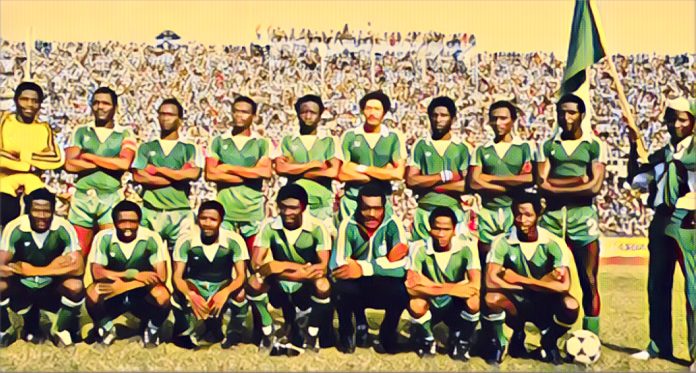Key Points
-
Nine members of Nigeria’s 1980 AFCON-winning team have passed away.
-
Christian Chukwu and Charles Bassey died within hours of each other.
-
The fallen players’ legacy continues to inspire Nigerian football.
The 1980 Africa Cup of Nations (AFCON) victory remains a pivotal moment in Nigeria’s football history.
On March 22, 1980, Nigeria defeated Algeria 3–0 at the National Stadium in Surulere, Lagos, and the entire country erupted in celebration.
That victory secured Nigeria’s first-ever AFCON title, uniting the nation and putting Nigerian football on the African map. The Green Eagles, as the team was known, became national heroes.
However, more than four decades later, nine of the 22 players from that historic team have passed away.
Among them, two—Christian Chukwu, the team’s captain, and Charles Bassey, the energetic forward—died within hours of each other in April 2025.
Fallen heroes remembered for their contribution
Christian Chukwu, known as “Chairman,” was not only the captain but also a defensive stalwart.
He later coached the Super Eagles to a bronze medal in 2004. Chukwu passed away in Enugu at age 74.
President Bola Tinubu paid tribute to him, calling him “a symbol of excellence and patriotism.”
Chukwu’s leadership and humility left a lasting impression on his former teammates and the country.
Charles Bassey, an important figure in the attack, also passed away in April 2025 at age 71.
After his playing career, Bassey coached several clubs, including Akwa United and Wikki Tourists.
His death in his hometown of Eket, Akwa Ibom, followed a prolonged illness. The loss of these two iconic players is deeply felt by the Nigerian football community.
Legacy of the 1980 squad continues to inspire
The impact of the 1980 AFCON squad extends beyond their playing days. Some, like Muda Lawal, became coaching icons, while others, like Martins Eyo, lived quietly after retirement.
Despite their passing, the legacy of these players remains. Their passion, skill, and dedication to the game brought Nigeria its first major football title and inspired generations of footballers.
While their presence is no longer felt on the pitch, their contribution to Nigeria’s football history is forever etched in the memories of their fans and the nation.
The memory of these fallen heroes must not fade, as their legacy continues to shape the future of Nigerian football.



